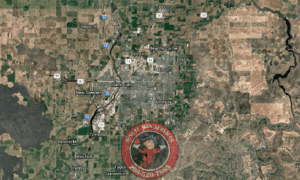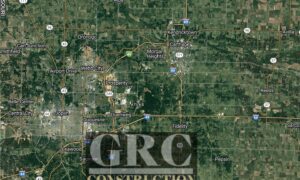Erosion is a persistent challenge that affects landscapes, shorelines, and construction sites. Without proper mitigation, soil displacement can lead to land instability, property damage, and environmental hazards. Whether protecting a waterfront, stabilizing slopes, or implementing drainage solutions, hiring an experienced erosion control contractor is essential for long-term success. Choosing the right professional ensures that erosion control methods are effective, sustainable, and compliant with local regulations.
Erosion control involves more than just placing barriers or planting vegetation. It requires a strategic approach that considers factors such as soil composition, water flow, and environmental impact. A qualified contractor will assess these variables and develop a customized plan tailored to the site’s specific needs. Working with the right team can prevent costly repairs, enhance land stability, and support ecological conservation.
This guide outlines key factors to consider when selecting an erosion control contractor. From evaluating expertise to understanding available solutions, knowing what to look for helps property owners and project managers make informed decisions. Investing in the right contractor leads to more durable, efficient, and environmentally responsible erosion control.
Assessing Experience and Expertise
1. Understanding Specialization in Erosion Control
Not all contractors have the same level of expertise in erosion prevention.
- Some specialize in shoreline erosion control, while others focus on slope stabilization or construction site management.
- A contractor’s experience with different terrains and environmental conditions influences the effectiveness of their solutions.
- Reviewing past projects can provide insight into their capabilities and suitability for a specific project.
Choosing a contractor with expertise in the relevant erosion control methods ensures effective land protection.
2. Evaluating Knowledge of Soil and Water Dynamics
Erosion control requires an understanding of how soil and water interact.
- Proper soil analysis helps determine the best stabilization techniques.
- Managing water runoff is critical to preventing erosion in both urban and rural settings.
- A contractor should be able to recommend solutions based on site-specific drainage patterns.
Technical knowledge in these areas ensures that erosion control measures are both effective and sustainable.
3. Checking Certifications and Industry Credentials
Certifications and affiliations indicate a contractor’s commitment to best practices.
- Many erosion control professionals hold certifications from environmental and construction organizations.
- Membership in industry associations reflects adherence to regulatory standards.
- Licensed contractors are more likely to follow safety guidelines and comply with local laws.
Verifying credentials ensures that the contractor meets industry standards and regulations.
Understanding Erosion Control Solutions
1. Structural vs. Non-Structural Methods
Different sites require different approaches to erosion control.
- Structural methods include retaining walls, riprap, and seawalls to provide physical barriers against erosion.
- Non-structural methods focus on soil stabilization through vegetation, mulch, and biodegradable materials.
- A combination of both approaches is often the most effective strategy.
A knowledgeable contractor will recommend the best solution based on site conditions.
2. Drainage and Water Management Solutions
Controlling water flow is essential to preventing erosion.
- French drains and catch basins help redirect excess water.
- Permeable surfaces allow water absorption to reduce runoff.
- Proper grading and slope adjustments prevent water from pooling in vulnerable areas.
A contractor’s ability to implement water management strategies improves erosion control effectiveness.
3. Shoreline Erosion Control Techniques
Waterfront properties require specialized methods to prevent soil loss.
- Riprap and boulder placement absorb wave energy and protect shorelines.
- Vegetative buffers reinforce banks and filter runoff.
- Seawalls and breakwaters provide added protection in high-energy wave environments.
Contractors with experience in shoreline erosion control can recommend the most suitable stabilization techniques.
Key Factors to Consider When Hiring a Contractor
1. Reviewing Past Work and References
A contractor’s previous projects provide insight into their reliability and workmanship.
- Examining before-and-after images of completed projects showcases their capabilities.
- Speaking with past clients can reveal details about communication, timeliness, and problem-solving.
- A portfolio of successful erosion control projects demonstrates expertise in the field.
Checking references and project history helps in selecting a reputable contractor.
2. Compliance with Local Regulations and Environmental Standards
Erosion control projects must follow legal and environmental guidelines.
- Contractors should be familiar with municipal codes and permit requirements.
- Working within environmental regulations ensures that solutions do not harm surrounding ecosystems.
- Sustainable practices, such as using native plants and eco-friendly materials, align with conservation efforts.
Compliance with regulations prevents legal issues and supports responsible land management.
3. Cost Transparency and Project Estimates
Understanding the cost of erosion control services helps in budget planning.
- Detailed project estimates should outline labor, materials, and additional costs.
- Contractors should explain any potential variables that could affect pricing.
- Comparing multiple quotes ensures competitive pricing without compromising quality.
A clear pricing structure prevents unexpected expenses and ensures fair value for services.
Why Hiring a Professional Erosion Control Contractor Matters
1. Preventing Long-Term Property Damage
Improper erosion control can lead to costly repairs and land instability.
- Uncontrolled soil loss can affect foundations, driveways, and landscaping.
- Water damage from runoff may lead to flooding and infrastructure issues.
- Early intervention with professional solutions reduces long-term maintenance costs.
Investing in erosion control protects property value and minimizes future risks.
2. Enhancing Land Stability and Usability
Erosion control efforts improve the structural integrity of land.
- Reinforced slopes and retaining walls create safer and more stable landscapes.
- Proper drainage solutions prevent standing water and soil displacement.
- Well-managed land remains usable for residential, commercial, or recreational purposes.
A properly stabilized site supports long-term sustainability and functionality.
3. Supporting Environmental Conservation
Sustainable erosion control benefits both property owners and the surrounding ecosystem.
- Vegetative buffers and living shorelines improve habitat conditions for wildlife.
- Reducing sediment runoff protects water quality in lakes and rivers.
- Eco-friendly materials and techniques minimize environmental disruption.
Professional erosion control solutions promote ecological balance while preventing land degradation.
Steps to Take When Hiring an Erosion Control Contractor
1. Research Potential Contractors
Gather information on companies that specialize in erosion control.
- Look for businesses with a proven track record in soil stabilization and shoreline protection.
- Compare services and read online reviews to evaluate customer satisfaction.
- Ensure the contractor has the necessary licenses and insurance coverage.
Thorough research helps identify reliable professionals.
2. Schedule a Site Assessment
A proper evaluation helps determine the best erosion control solutions.
- Contractors should visit the site to assess erosion risks and soil conditions.
- Discussions should cover project scope, expected timelines, and recommended methods.
- Custom erosion control plans should be tailored to the specific needs of the property.
A detailed assessment ensures that solutions are designed for maximum effectiveness.
3. Review the Contract and Timeline
Before starting the project, review all terms and conditions.
- Ensure the contract outlines project details, estimated costs, and completion dates.
- Confirm warranty options for erosion control structures and vegetation.
- Clarify any questions regarding maintenance and follow-up services.
Finalizing agreements in writing ensures transparency and accountability.
Conclusion
Choosing the right erosion control contractor is crucial for ensuring effective land stabilization, shoreline protection, and environmental preservation. Evaluating experience, understanding available solutions, and reviewing compliance with regulations helps in selecting a qualified professional. Proper erosion control not only safeguards properties but also contributes to sustainable land management.
For expert erosion control solutions, Mountain Stone provides reliable services tailored to the specific needs of each project. Partnering with experienced professionals ensures long-term protection against erosion while maintaining the integrity of the land.
Read More From Techbullion



































